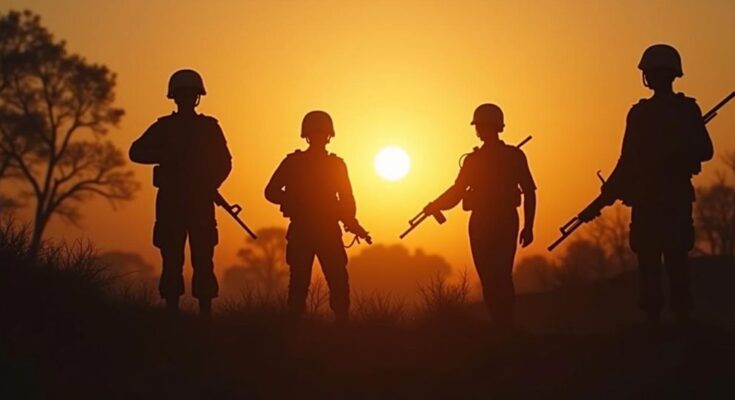The Sudanese army has rejected the UAE’s allegations of bombing the UAE ambassador’s residence in Khartoum, exacerbating tensions between the two nations. The Sudanese military defended its actions by blaming the RSF for attacks on diplomatic sites, while Kuwait and Jordan condemned the incident, reaffirming respect for diplomatic immunity.
The Sudanese Armed Forces have firmly denied allegations made by the United Arab Emirates (UAE) regarding an aerial attack on the residence of their ambassador in Khartoum. The condemnation came after the UAE Ministry of Foreign Affairs accused Sudanese military personnel of targeting the diplomatic dwelling with aircraft. This accusation is a significant escalation of tensions between the two nations, particularly as Sudanese military leaders have claimed that the UAE is exacerbating the conflict by providing support to the Rapid Support Forces (RSF). The spokesperson for the Sudanese army asserted in a Monday statement, “The Sudanese Armed Forces condemn and deny the accusation by the United Arab Emirates of bombing the residence of its ambassador in Khartoum.” Furthermore, they emphasized that the military does not target diplomatic missions, United Nations entities, or humanitarian organizations and maintains that it operates under the principles of international law. The spokesperson attributed the attacks to the “Terrorist militia of the Daglo rebels,” which they claimed had received backing from nations known globally. Moreover, the military justifies its operations as responses to militia threats, reaffirming its right to defend Sudan. Conflict in Khartoum has intensified since April 2024, prompting the evacuation of diplomatic missions, which have mostly relocated to Port Sudan in the country’s east. It has been reported that RSF forces have committed acts of looting and assaults on foreign embassies, alarming Sudanese officials who lament the lack of strong international condemnation of these incidents. In response to the situation, both Kuwait and Jordan issued condemnations regarding the purported attack on the UAE ambassador’s residence, highlighting the necessity of safeguarding diplomatic missions in accordance with international protocols. The Kuwaiti Ministry of Foreign Affairs reiterated the importance of respecting the inviolability of diplomatic premises as outlined in the 1961 Vienna Convention on Diplomatic Relations, while Jordan’s Foreign Ministry spokesperson described the assault as a “serious violation of international law and an infringement on the sanctity of diplomatic premises.”
This article reflects the ongoing tensions between Sudan and the UAE amidst a chaotic situation in Khartoum following escalating violence. The backdrop includes the Sudanese army’s longstanding conflict with the RSF and international concerns regarding the safety of diplomatic missions amidst civil unrest. The accusations from the UAE point to a broader concern regarding military engagements and international law, while Sudan’s military seeks to assert its position and response capabilities.
In summary, the denial by the Sudanese military of bombings targeting the UAE ambassador’s residence underscores the rising diplomatic strains between Sudan and the UAE. The situation highlights the dangers faced by diplomatic entities in conflict zones and the broader implications of military actions on international relations. Greater international attention and actions are being called for to address these violations of diplomatic sanctity.
Original Source: sudantribune.com




